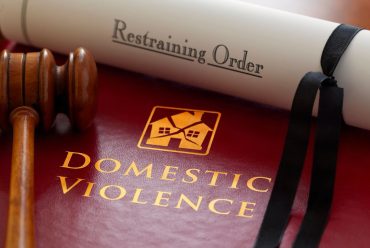What Does Cohabitation Mean When Claiming Spousal Support?
If you are unmarried or seeking separation in Ontario, you are entitled to spousal support as long as you can prove cohabitation. Anyone claiming or paying spousal support must be able to prove their claim to the court. In this guide, we explain what cohabitation means and how it affects spousal support claims.
What is Cohabitation?
Cohabitation refers to living together in a conjugal relationship, whether married or not. In Ontario, cohabitation is recognized under the Family Law Act, which treats common-law relationships similarly to marriages after a certain period.
Key Points About Cohabitation
- Duration: In Ontario, living together for at least 3 years qualifies as cohabitation. If you have a child together, the duration requirement may be shorter.
- Nature of Relationship: Sharing finances, a home, and responsibilities, and presenting yourselves as a couple to society, are indicators of cohabitation.
Cohabitation and Spousal Support
When claiming spousal support, cohabitation can affect eligibility and the amount awarded. Courts in Ontario consider the length and nature of the relationship, as well as the financial interdependence between partners. Since it is a calculative matter, work with an experienced family lawyer in Etobicoke to make sure you receive the most amount you deserve.
How to Establish Spousal Support?
- Prove Cohabitation: Gather evidence showing that you lived together in a conjugal relationship. It includes shared leases, bills, or testimony from friends and family.
- Demonstrate Financial Need: Show that you relied on your partner financially or contributed significantly to the household.
- Consult a Lawyer: A lawyer can help you navigate the legal process and gather necessary documentation.
Challenges in Proving Cohabitation
- Insufficient Evidence: Lack of documentation or witness testimony can hinder your claim.
- Disputed Relationship: If the other party disputes the cohabitation claim, legal proceedings can become complicated.

Sign a Cohabitation agreement
A cohabitation agreement is a formalized agreement between two unmarried spouses on matters not covered by law. It should be completed with or by a lawyer as you need their guidance and support to prevent inequality in the event of a separation.
Cohabitation agreements commonly cover:
- Household expense payments
- Processes if you separate
- Division of property and debts brought into the relationship
- Repayments of shared debts after separation
- Support payment amounts, if any, to be paid after separation either due to a change in equality or status in the relationship
A cohabitation agreement can change as your relationship changes. It is best practice to review your agreement once a year to ensure it covers your current situation.
- Fair Support: Recognizes financial and non-financial contributions, ensuring fair support distribution.
- Legal Protection: Provides legal standing for common-law partners, similar to married couples, which they won’t receive without an agreement.
Legal Resources and Support
Navigating cohabitation and spousal support laws can be challenging. Consulting a divorce lawyer can provide clarity and ensure your rights are protected.
Resources for Assistance
- Family Law Professionals: A divorce lawyer can offer personalized advice and representation.
- Government Websites: Visit the Ontario Ministry of the Attorney General for comprehensive information on family law.
- Legal Aid: If you cannot afford a lawyer, Legal Aid Ontario offers assistance to qualifying individuals.
Whether you’re seeking support or defending against a claim, an experienced spousal support lawyer can guide you through the process. Need help with signing a cohabitation agreement in Etobicoke? Noori Law is here for you. Contact us today for a consultation.








